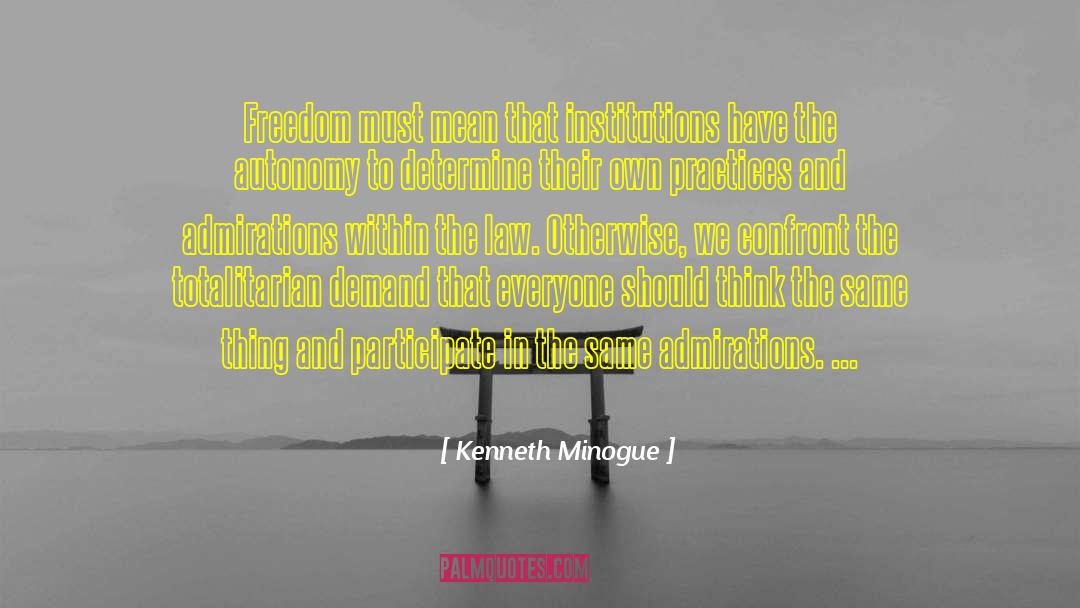Kenneth Minogue Famous Quotes
Reading Kenneth Minogue quotes, download and share images of famous quotes by Kenneth Minogue. Righ click to see or save pictures of Kenneth Minogue quotes that you can use as your wallpaper for free.
To be conservative in politics is to take one's bearings not from the latest bright idea about how to make a better world, but by looking carefully at what the past reveals both about the kind of people we are and the problems that concern us. As we get older, we often become conservative in our habits, in our family practices, and in our recognition of the richness of our civilization, but this evolution of our character into a set of habits in no way blocks adventurousness. The old no less than the young may be found starting new enterprises, sailing around the world, and solving arcane academic questions. But it is in the ordinary business of life that we find our excitement, not in foolish collective dreams of political perfection.
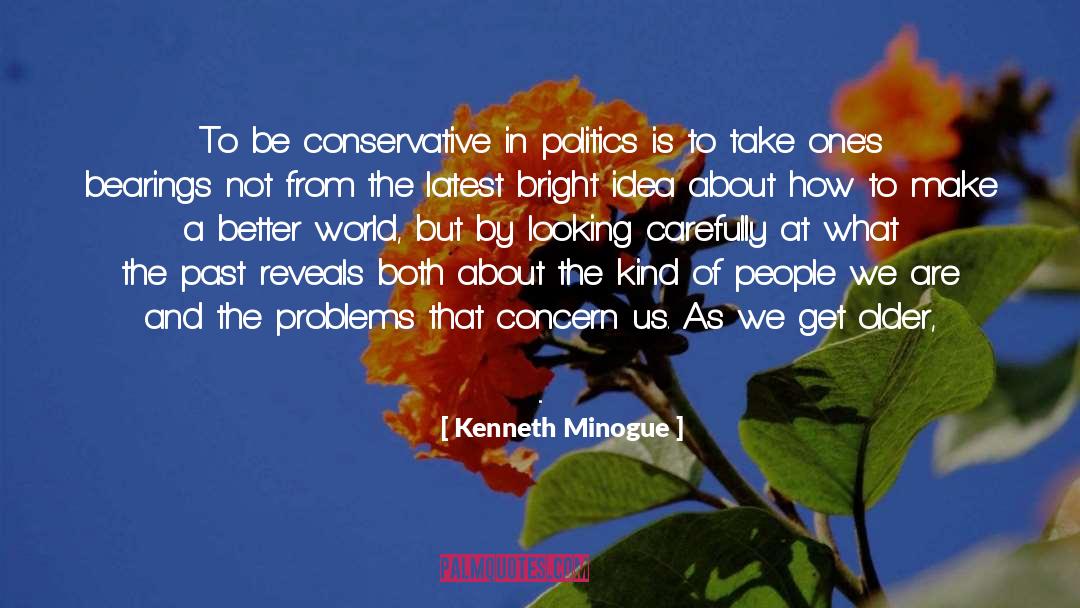
Moral vices prosper by dressing themselves as virtues.

Europeans have sometimes been beguiled by a despotism that comes concealed in the seductive form of an ideal – as it did in the cases of Hitler and Stalin. This fact may remind us that the possibility of despotism is remote neither in space nor in time.
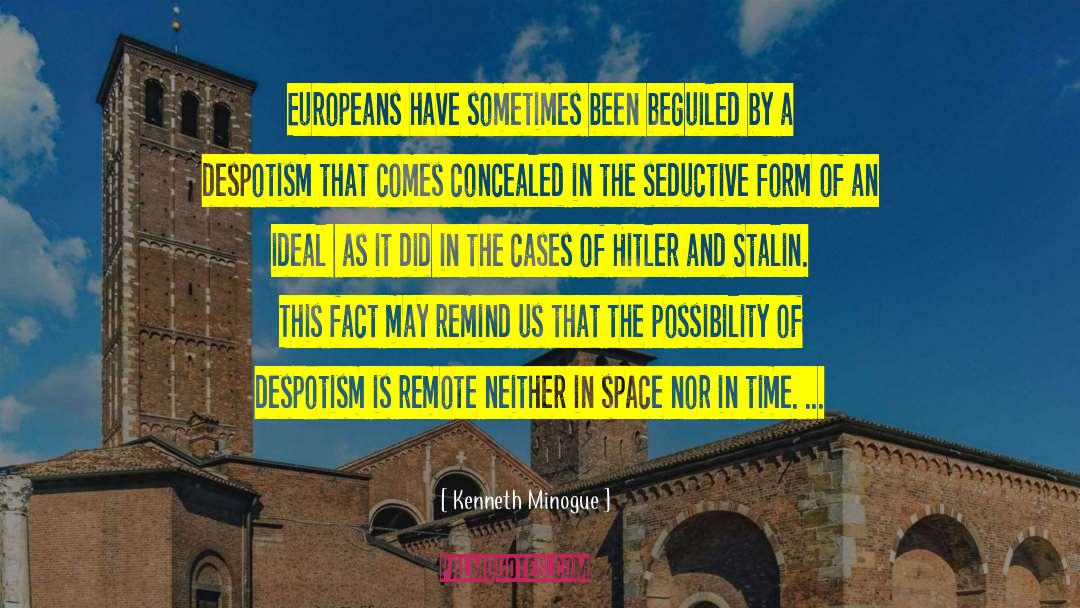
Their [realists'] concern is that utopian aspirations towards a new peaceful world order will simply absolutize conflicts and make them more intractable. National interests are in some degree negotiable; rights, in principle, are not. International organizations such as the United Nations have not been conspicuously successful in bringing peace, and it is likely that the states of the world would become extremely nervous of any move to give the UN the overwhelming power needed to do this.
![Kenneth Minogue Quotes: Their [realists'] concern is that Kenneth Minogue Quotes: Their [realists'] concern is that](https://palmquotes.com/author/kenneth-minogue-quotes-878995.jpg)
The story of liberalism, as liberals tell it, is rather like the legend of St. George and the dragon. After many centuries of hopelessness and superstition, St. George, in the guise of Rationality, appeared in the world somewhere about the sixteenth century. The first dragons upon whom he turned his lance were those of despotic kingship and religious intolerance. These battles won, he rested for a time, until such questions as slavery, or prison conditions, or the state of the poor, began to command his attention. During the nineteenth century, his lance was never still, prodding this way and that against the inert scaliness of privilege, vested interest, or patrician insolence. But, unlike St. George, he did not know when to retire. The more he succeeded, the more he became bewitched with the thought of a world free of dragons, and the less capable he became of ever returning to private life. He needed his dragons. He could only live by fighting for causes - the people, the poor, the exploited, the colonially oppressed, the underprivileged and the underdeveloped. As an ageing warrior, he grew breathless in his pursuit of smaller and smaller dragons - for the big dragons were now harder to come by.
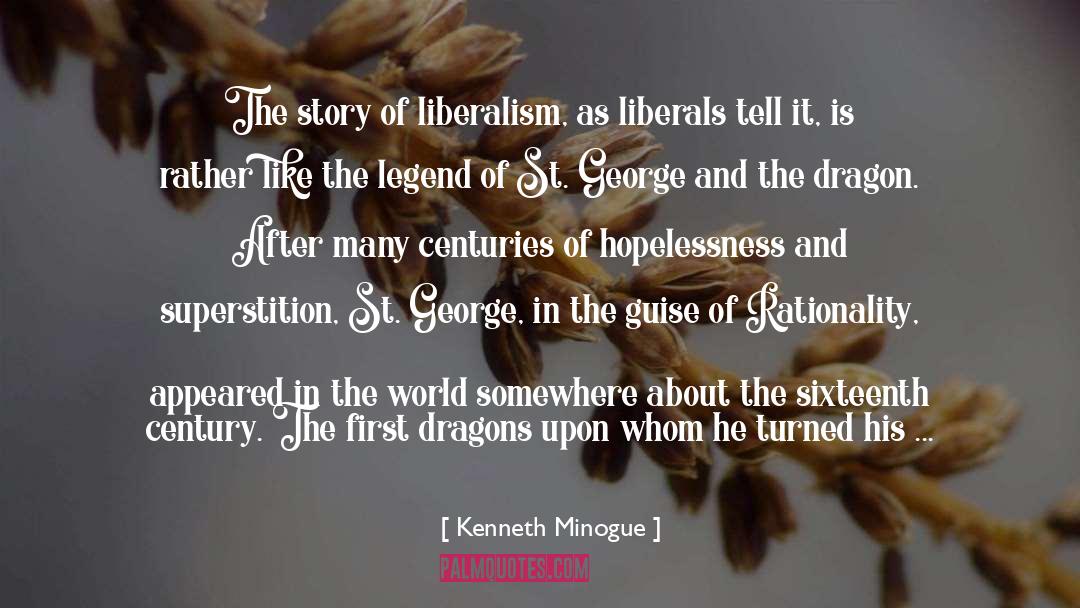
An ideological movement is a collection of people many of whom could hardly bake a cake, fix a car, sustain a friendship or a marriage, or even do a quadratic equation, yet they believe they know how to rule the world. The university, in which it is possible to combine theoretical pretension with comprehensive ineptitude, has become the natural habitat of the ideological enthusiast. A kind of adventure playground, carefully insulated from reality in order to prevent absent-minded professors from bumping into things as they explore transcendental realms, has become the institutional base for civilizational self-hatred.
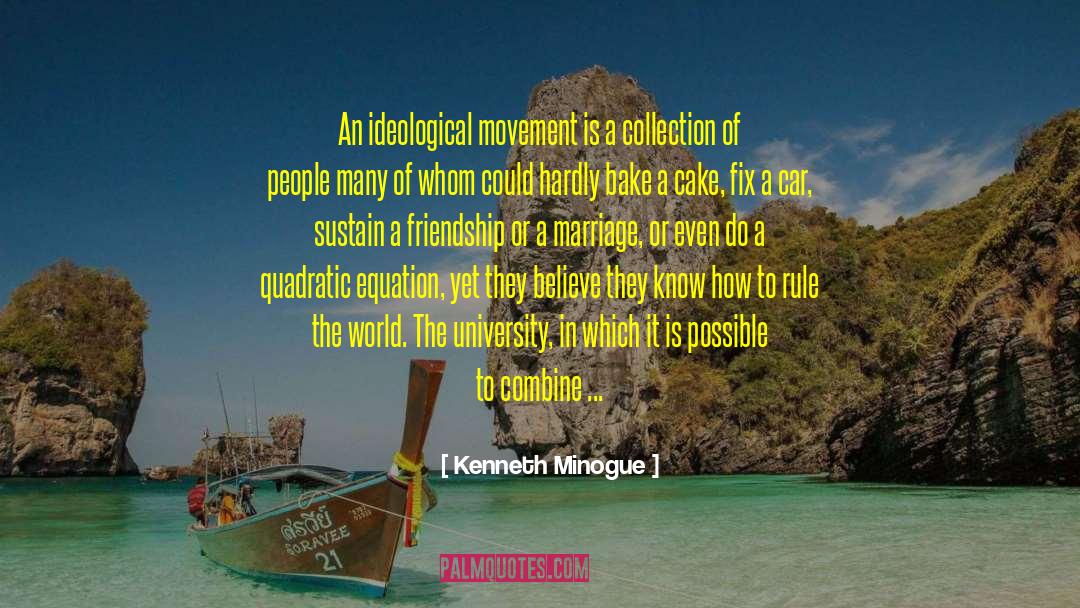
At the turn of the twentieth century, the first wave of academic political scientists attacked some of their theoretical predecessors for the supposed mistake of assuming that human beings were entirely rational. This mistake had allegedly been made by politicians and theorists who had tried to appeal to voters in terms of purely rational argument. The new political scientists triumphantly pointed out that image, stereotype, the emotions arising in crowds, family background, and many other irrational factors were actually the main determinants of political behaviour.
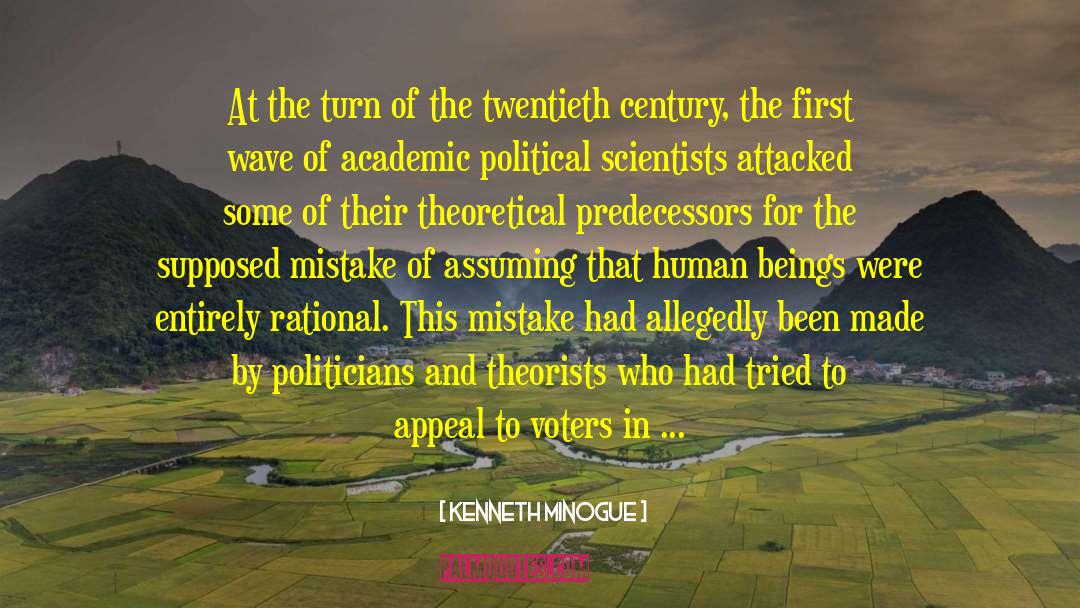
For it is a conspicuous feature of democracy, as it evolves from generation to generation, that it leads people increasingly to take up public positions on the private affairs of others ... each person thus becomes his own fantasy despot, disposing of others and their resources as he or she thinks desirable.
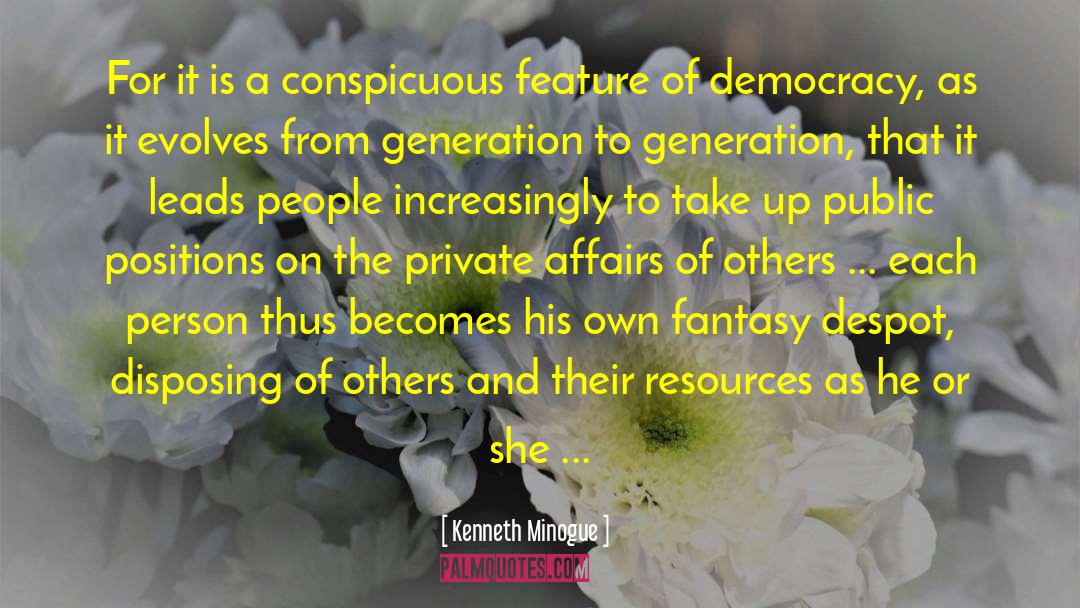
Olympianism is the characteristic belief system of today's secularist, and it has itself many of the features of a religion. For one thing, the fusion of political conviction and moral superiority into a single package resembles the way in which religions (outside liberal states) constitute comprehensive ways of life supplying all that is necessary (in the eyes of believers) for salvation. Again, the religions with which we are familiar are monotheistic and refer everything to a single center. In traditional religions, this is usually God; with Olympianism, it is society, understood ultimately as including the whole of humanity. And Olympianism, like many religions, is keen to proselytize. Its characteristic mode of missionary activity is journalism and the media.
If Olympianism has the character of a religion, as I am suggesting, there would be no mystery about its hostility to Christianity. Real religions (by contrast with test-tube religions such as ecumenism) don't much like each other; they are, after all, competitors. Olympianism, however, is in the interesting position of being a kind of religion which does not recognize itself as such, and indeed claims a cognitive superiority to religion in general. But there is a deeper reason why the spread of Olympianism may be measured by the degree of Christophobia. It is that Olympianism is an imperial project which can only be hindered by the association between Christianity and the West.
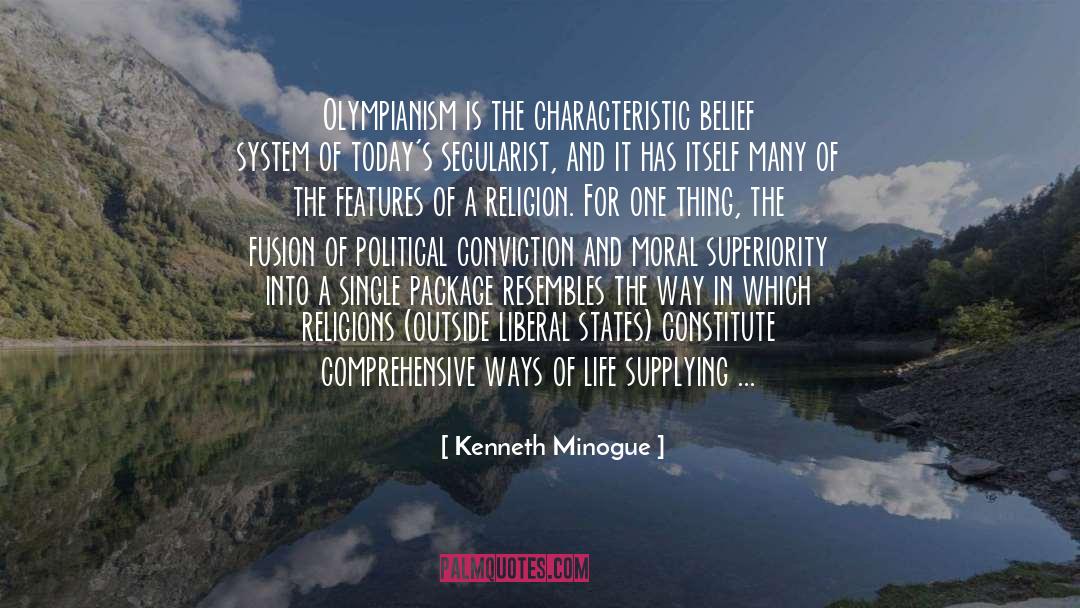
The failure of Communism was consecrated in the fall of the Soviet Union. The remarkable thing is that, as in most cases when prophecy fails, the faith never faltered. Indeed, an alternative version had long been maturing, though cast into the shadows for a time by enthusiasm for the quick fix of revolution. It had, however, been maturing for at least a century and already had a notable repertoire of institutions available. We may call it Olympianism, because it is the project of an intellectual elite that believes that it enjoys superior enlightenment and that its business is to spread this benefit to those living on the lower slopes of human achievement. And just as Communism had been a political project passing itself off as the ultimate in scientific understanding, so Olympianism burrowed like a parasite into the most powerful institution of the emerging knowledge economy--the universities.
We may define Olympianism as a vision of human betterment to be achieved on a global scale by forging the peoples of the world into a single community based on the universal enjoyment of appropriate human rights. Olympianism is the cast of mind dedicated to this end, which is believed to correspond to the triumph of reason and community over superstition and hatred. It is a politico-moral package in which the modern distinction between morals and politics disappears into the aspiration for a shared mode of life in which the communal transcends individual life. To be a moral
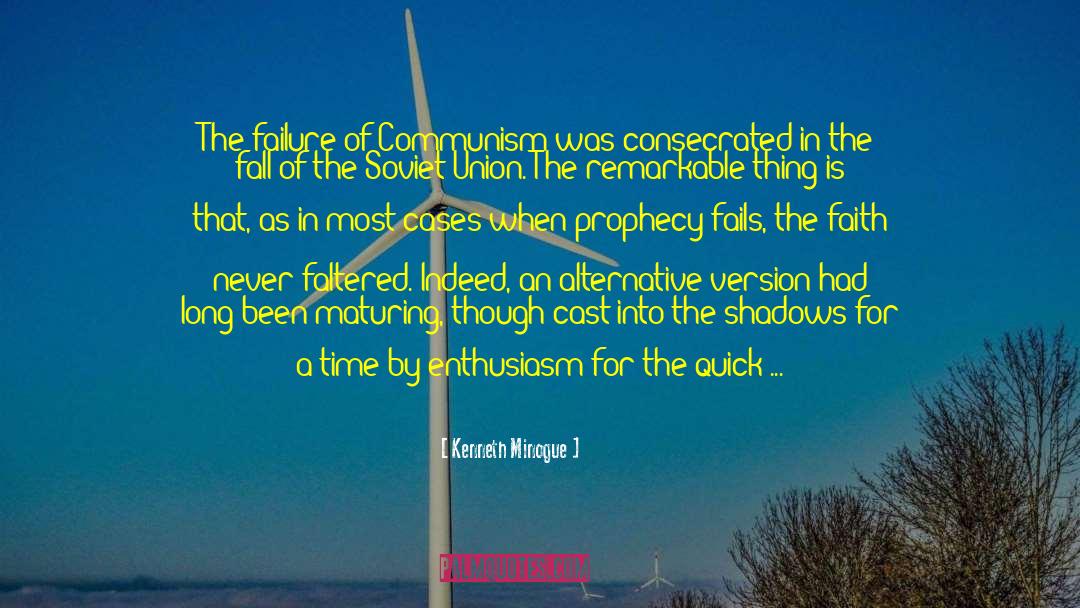
Politics is the activity by which the framework of human life is sustained; it is not life itself.
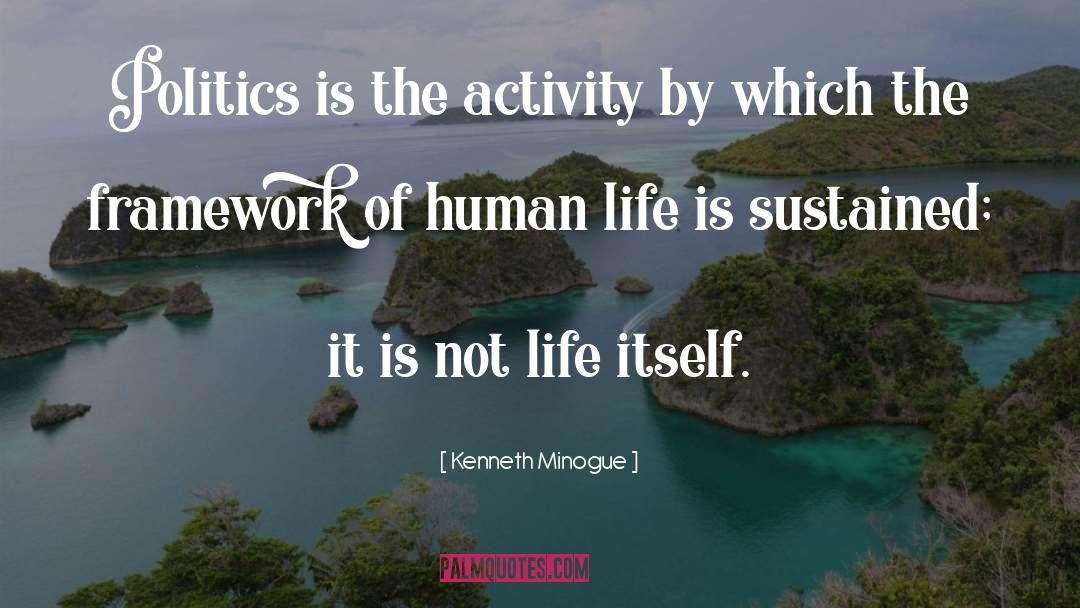
Have I really been in a battle?" wondered Stendhal's hero after many hours blundering around the field of Waterloo, and many people today share a similar perplexity. Like Stendhal's hero, they eat and drink and sustain the business of life, but the meaning of it all depends upon their conviction of contributing to the liberation of workers, women, the colonized, or other varieties of the oppressed. Like Fabrizio del Dongo, they find a regiment and tag along - the Hussars against Patriarchy, the Dragoon Guards of the Proletariat, and so on. Quite where the real battle lies is hotly disputed, but its significance is agreed to be a final end to oppression. (…) My argument, then, is an exploration of the hypothesis that there is a pure theory of ideology, and while from one point of view it is a critique, from another it is a do-it-yourself ideology kit. It begins with some suggestions about how ideology was generated from eighteenth-century social theory. The long central section is an attempt to characterize ideologies as forms of understanding. The last section develops the view that, although ideology must take on political trappings in order to transform the world, its real character is entirely antithetical to the practice of politics. Ideology is to reality, I suggest, as (in Tolstoy's opinion) the reports of battles are to the concrete experience of individuals in the field. In ideological moods, we think we see in social and political life those clear lines from the hist

Science turns whatever it studies into a natural process which is not affected by thinking, because thought is the capacity to construe the world in a variety of ways, and how human beings act depends on these unpredictable constructions. Human conduct thus lacks even the regularity found in the natural world.

The evident problem with democracy today is that the state is pre-empting - or "crowding out," as the economists say - our moral judgments. Rulers are adding moral judgments to the expanding schedule of powers they exercise. Nor does the state deal merely with principles. It is actually telling its subjects to do very specific things. Yet decisions about how we live are what we mean by "freedom," and freedom is incompatible with a moralizing state. That is why I am provoked to ask the question: can the moral life survive democracy?
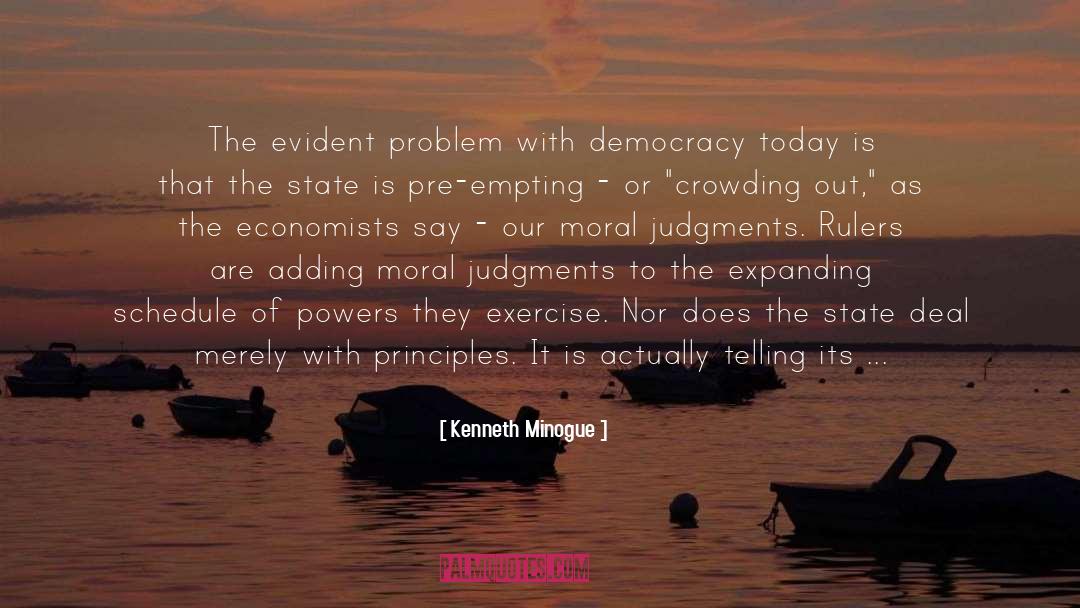
Theodore Dalrymple is a brilliant observer of both medicine and society, and his book wittily engages with two versions of the current nonsense: orthodox medicine on drug addiction, and romantic poets on the wisdom you supposedly enjoy from getting high.
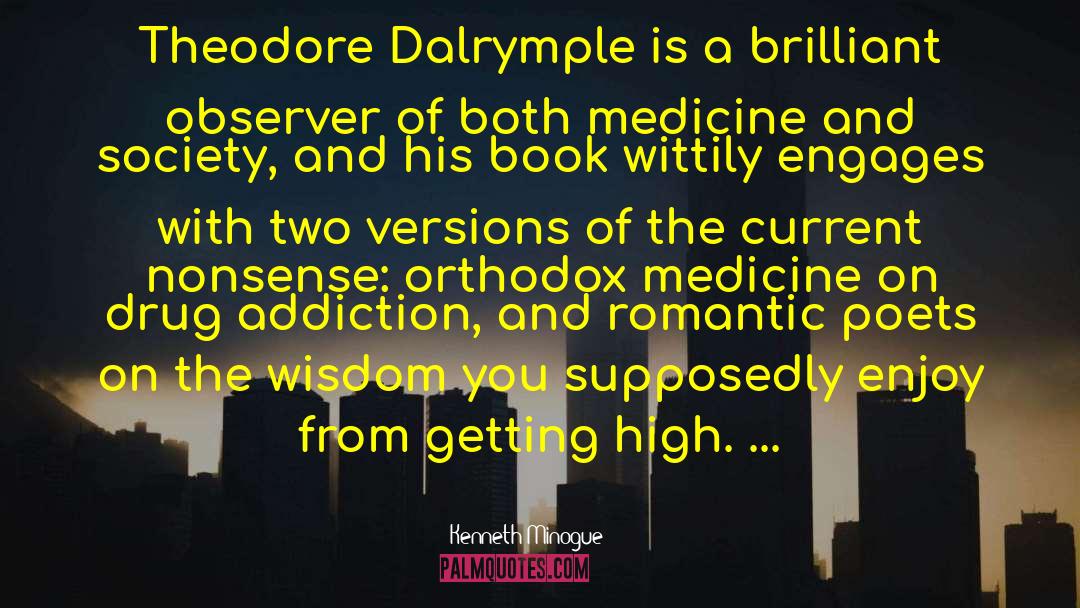
It is said that the price of freedom is vigilance, and an important form of vigilance is attention to political rhetoric, which often reveals how things are going.
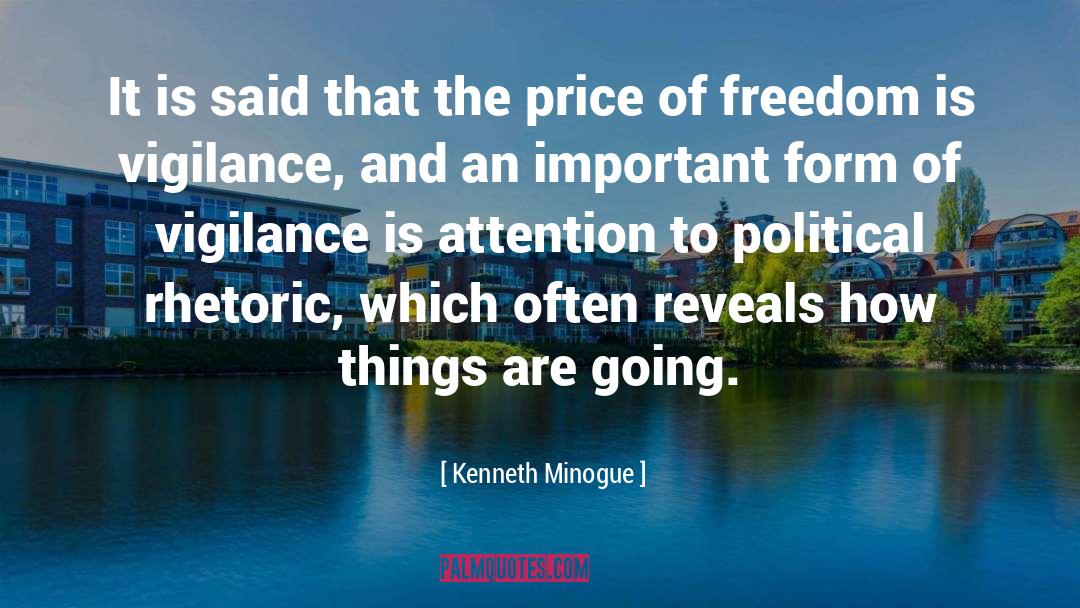
In a world in which the personal is widely believed to be the political, the sheep of toleration soon turns into the wolf that demands acceptance, indeed, admiration.
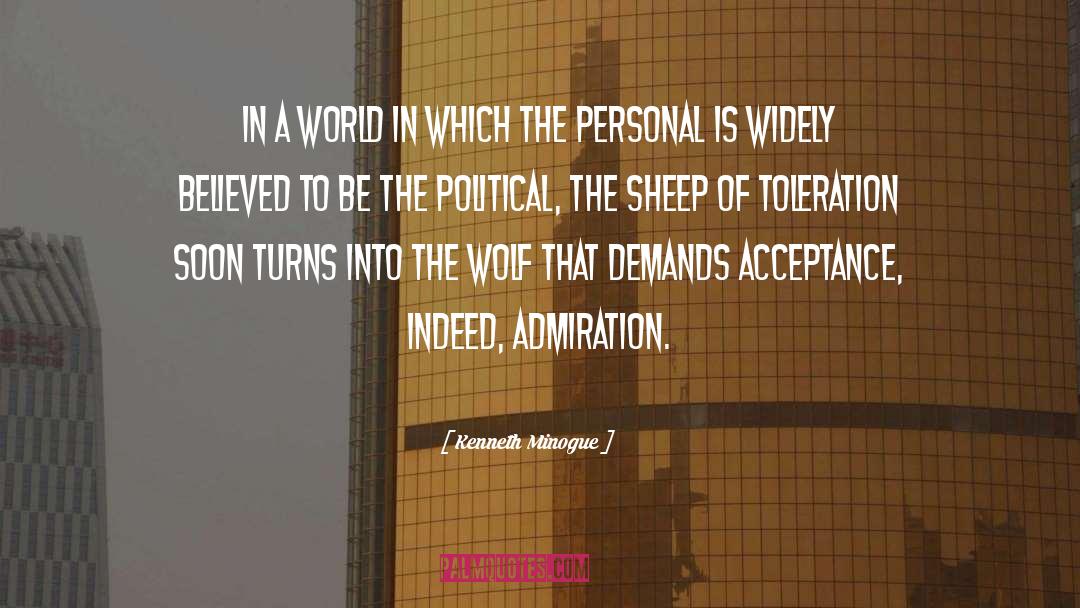
If the central contest of the twentieth century has pitted capitalism against socialism, then F. A. Hayek has been its central figure. He helped us to understand why capitalism won by a knockout. It was Hayek who elaborated the basic argument demonstrating that central planning was nothing else but an impoverishing fantasy.
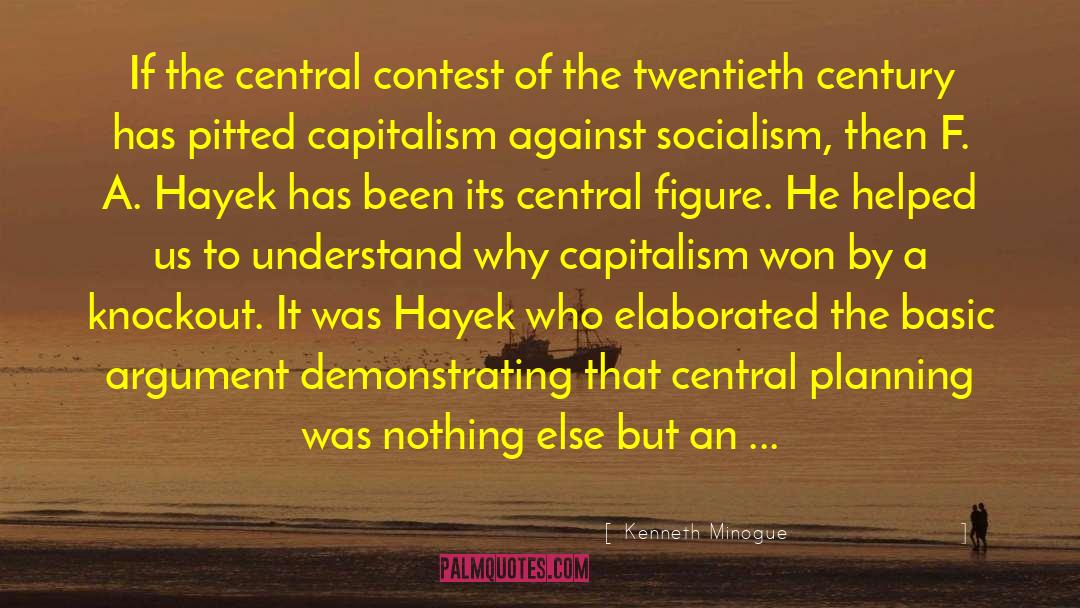
Public respect for politicians has long been declining, even as the population at large has been seduced into responding to each new problem by demanding that the government should act. That we should be constantly demanding that an institution we rather despise should solve large problems argues a notable lack of logic in the demos. The statesmen of times past have been replaced by a set of barely competent social workers eager to help 'ordinary people' solve daily problems in their lives. This strange aspiration is a very large change in public life. The electorates of earlier times would have responded with derision to politicians seeking power in order to solve our problems. Todays, the demos votes for them.
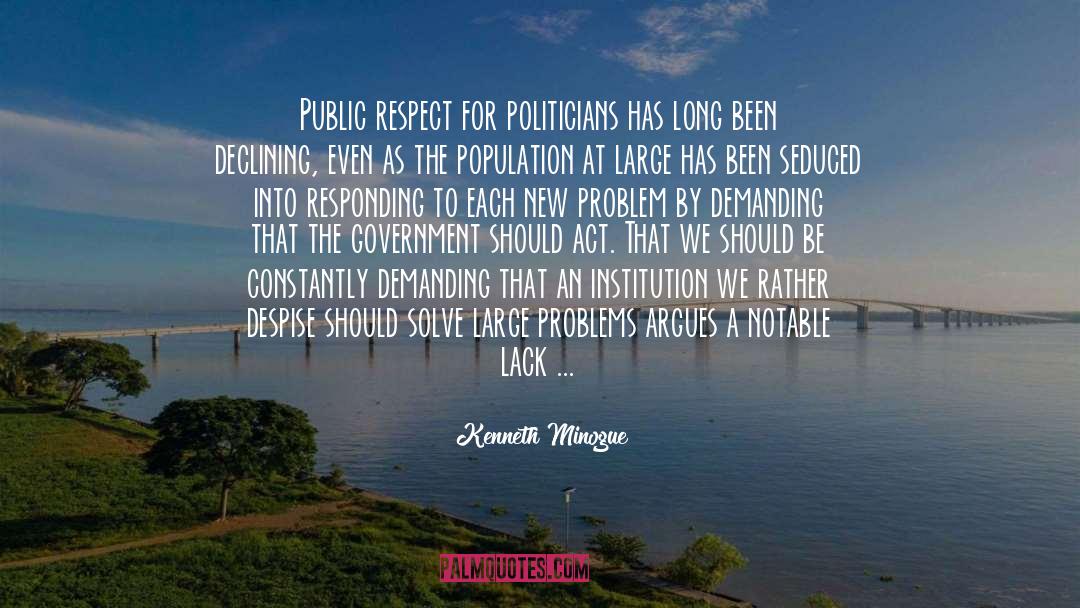
Freedom must mean that institutions have the autonomy to determine their own practices and admirations within the law. Otherwise, we confront the totalitarian demand that everyone should think the same thing and participate in the same admirations.
